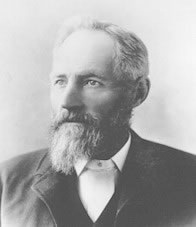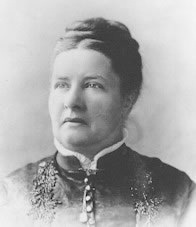Lilley Family


John and Louisa Lilley, c.1890.
John G. Lilley was an example of an emigrant who made a good life in America. Born in Hillsboro, England, in 1832 or 1833, he came first to this country at age twenty for a look at New England. In 1854 he returned and located in La Cross, Wisconsin, where he was in the wholesale meat business. Back to England in 1856, he married Louisa Hiller of Burtonhead, near Liverpool, and brought her with him to Wisconsin. Apparently always looking westward, they came to Colorado in 1860 where he, as did Joseph W. Bowles, sought gold near Central City. In 1861 he built a quartz mill at the mining town of Gold Dirt. His final move was to a farm in the Platte River valley west of Littleton in 1862. Part of the 320 acres that he acquired is now the site of the Columbine Country Club.
His was not only a highly productive farm which raised wheat, oats, and barley, but also a ranching operation dealing largely in cattle, but including horses and sheep. He, together with W. D. Coberley, bought livestock in southern Colorado and drove them to Denver.
Lilley naturally soon became acquainted with Richard Little and Joseph Bowles, other large landholders and prominent men in the Littleton community. Together with John McBroom, Peter Magnes and others, they built the Rough and Ready Flour Mill in 1867 on the Platte River near what became Bowles Avenue. It was an instant success and provided the way for the flourishing valley farms to market their ground flour to Denver and the mountain towns.
These were still the times of friendly and sometimes unfriendly Indians in eastern Colorado. Lilley's herd of 180 steers in pasture on Big Sandy Creek was stolen and one of the herders killed. In one instance, friendly Utes arrived at the Lilley house near Littleton one day in 1868 while John was gone and asked the family to cook dinner for them.
Active in civic affairs, Lilley served in the Colorado Territorial legislature in 1872, and took an important part in all legislation pertaining to the state's agricultural interests. He was an Arapahoe County commissioner for three years beginning in 1874 and was a member of the Littleton District No. 6 School Board for more than twenty-five years. He, with Joseph Bowles and Charles Hill, attempted to establish the rival town of Wynetka west of the river. Many of today's residents have heard mention of the historic "John G. Lilley Hook and Ladder Company." It was organized in 1890 by Mr. Lilley and consisted of twenty-four volunteer firemen. Their two-wheeled hose cart had to be trundled to the town's fires by manpower.
John and Louisa Lilley had ten children: William H., Anna (died as a child), Margaret (married Frank Soper), Fred J., Lucy (died as a child), Harry H., Marcia (married Charles Watlington), Josepha Sarah (married J. Sherman Brown), Benjamin E., and John G., Jr.
John Lilley's wife, Louisa, lived until 1895. John later remarried to Alice James, and they had one child, Alice Sarah. John G. died in 1909. He and Louisa, Anna, Lucy, Margaret, Harry, and Marcia are buried in the Littleton Cemetery.
Bibliography
Baskin, O. L. And Company. History Of the City Of Denver, Arapahoe County, and Colorado. Chicago: Baskin and Company, 1880.
Littleton, (Colo.) Independent. Littleton, Colo.: Littleton Independent Publishers, 1888- .
Littleton Museum. Photographic Archives and Biography/Placename Files.
McQuarie, Robert J. And C. W. Buchholtz. Littleton, Colorado. Settlement To Centennial. Littleton, Colo.: Littleton Historical Museum and Friends of the Littleton Library and Museum, 1990.
Mount Rosa Chapter, National Society of the Daughters of the American Revolution. Littleton Cemetery. Littleton, Colorado. Littleton, Colo.: Mount Rosa Chapter, National Society of the Daughters of the American Revolution, 1983.
Photographs courtesy of the Littleton Museum unless otherwise noted. To order copies, contact the museum at 303-795-3950.
Compiled by Doris Farmer Hulse
Updated April 2021 by Phyllis Larison